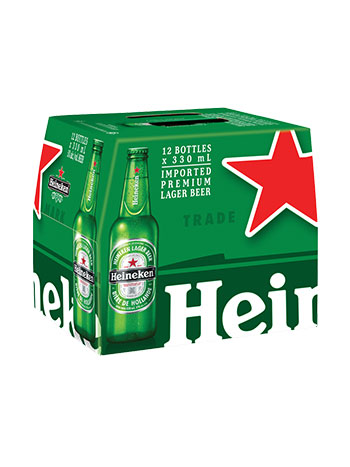History
 In 1900, The Prohibition Act, sometimes called the “Scott Act”, and described as “An Act Prohibiting the Sale of Intoxicating Liquor”, was passed by the Provincial Legislature.
In 1900, The Prohibition Act, sometimes called the “Scott Act”, and described as “An Act Prohibiting the Sale of Intoxicating Liquor”, was passed by the Provincial Legislature.
This Act replaced all previous legislation dealing with liquor and totally prohibited the use or sale of any form of liquor for beverage purposes. It did provide, however, for the sale at wholesale by persons known as “Vendors” to physicians, chemists, druggists, and persons engaged in art or trade in which alcohol was used. The physicians, chemists and druggists could in turn sell the liquor so purchased to any person presenting a physician prescription prescribing liquor for medicinal use.
The enforcement of the Act was in the hands of a Chief Inspector and such other Inspectors as were required. It would appear that these Inspectors had very broad powers to arrest, search and prosecute. It is noted in the minutes of the Council that there was a fairly large turnover in Inspectors. In a number of cases the dismissal would be based on a complaint from the Temperance Alliance or a petition from a community. During this period also, there were a number of disputes between the Alliance and the Government as to the advisability of granting vendors licenses to certain persons or in certain places.
In 1901, a further source of supply was established by an amendment to the Act permitting persons to establish themselves as dealers in liquor and to transact business both within and without the province. As a result of this amendment, several warehouses were established to sell to the wholesale Vendors and to export to other points.
Although a number of amendments were made to the Act in ensuing years, it was not until 1918 that any major changes took place. In that year, the Act was completely rewritten. It provided for the establishments of a six-member Board of Commissioners to be appointed for a three-year term by the Lieutenant-Governor-in-Council to administer the Act. The Commission was given the power to license one wholesale Vendor and as many retail Vendors as were deemed necessary. These retail Vendors were to replace the physicians and druggists who, up to this time, had filled the role.
The Vendors were to be paid on a commission basis varying from 10% to 50% with the percentage increasing with the volume. The retail Vendors could sell to any person presenting a prescription 24 oz of wine or spirits or 12 quarts of ale not oftener than once a day. However, this quantity could be doubled if the person lived more than ten miles from the Vendor.
In 1919, an amendment to the Act introduced what came to be known as “Scripts”. These were, in effect, pre-printed prescriptions, to be supplied to the physicians by the Commission. They were serially numbered and it is believed that the number issued to each physician was controlled as previously there had been no limit to the number of prescriptions a physician could write and abuses were creeping in to the system.
The 1919 Amendment also provided for the holding, in 1920, of a referendum on the whole question of Prohibition. However, the Government changed before the end of the year, and as the incoming Government had campaigned on a Prohibition plank, the referendum was never held.
In 1920, funds were made available to the Commission to be used by the wholesale Vendor for the purchase of liquor. Salaried retail Vendors were established at Charlottetown, Summerside, Montague and Alberton selling at prices set by the Commission.
A list of the six Commissioners in 1920 shows them all to be clergymen.
The Act was again revised in 1928. The six member Commission was abolished and in its place, a new Commission consisting of a Chairman and two members, all salaried, was established. This Commission, like the previous one, was appointed by the Lieutenant-Governor-in-Council. This continued until 1937, when in another revision, the entire operation was placed under the direct control of the Attorney General.
It was in 1945 however, that an amendment was introduced that marked the beginning of the end of Prohibition. This amendment stated that provided a physician felt that the use of liquor over an extended period would benefit the health of a patient, he could prescribe 26 oz of spirits, or 104 oz of wine, or nine full quarts of ale, to be delivered weekly over a six month period. Upon receiving such a prescription, the patient could exchange it for a warrant which had coupons on it redeemable weekly for the quantity above. These were not accumulative and had to be redeemed on the due date.
This particular amendment was refused Royal Assent at the conclusion of the Session on May 5th, but with the appointment of a new Lieutenant Governor, received the necessary assent in October, and came into effect.
This system prevailed until a new Act, known as the “Temperance Act,” was introduced in the 1948 Session. This Act provided for the repeal of the Prohibition Act and the establishment of a Government Liquor Control System similar to the other Provinces, with the rather curious difference that the Commission to be established to administer the Act would be known as the “Temperance Commission”. Under the Act, residents would require a permit to purchase liquor and a special permit would be available to visitors. The quantity an individual could purchase at any one time remained unchanged. A number of the permits were introduced for other specific uses of liquor. Among these was a permit permitting liquor in messes, canteens, Legion branches and non-profit clubs. The quantity that could be purchased was specified on the permit as were the hours of consumption.
This new Act was subject to the approval of the electorate by means of a plebiscite, held on June 28th, 1948. The result was in favour of the new Act, and the sale of liquor for beverage purposes became legal on July 6th, 1948.
The Temperance Act received a number of amendments in the next thirteen years. Two were of major significance to the public. In 1952, an amendment permitted four weekly rations to be purchased at any one time in the month; and in 1960, all quantity restrictions were removed.
The word “Temperance” finally disappeared in 1961, when the Act became “The Liquor Control Act”, and the Commission, “the Liquor Control Commission”.
As the result of a case in 1963, the Courts found that the special permits issued to clubs and canteens permitted possession only by the organization and any such liquor could not be re-sold. However, action was withheld until an amendment to the Act was passed in the 1964 session providing for the regular licensing of premises as practiced in other provinces. The outstanding special permits were then resigned and applications received and licenses issued to those qualified under the new legislation.
The last major amendment was in 1967, when the Individual and Tourist Permits were abolished.





